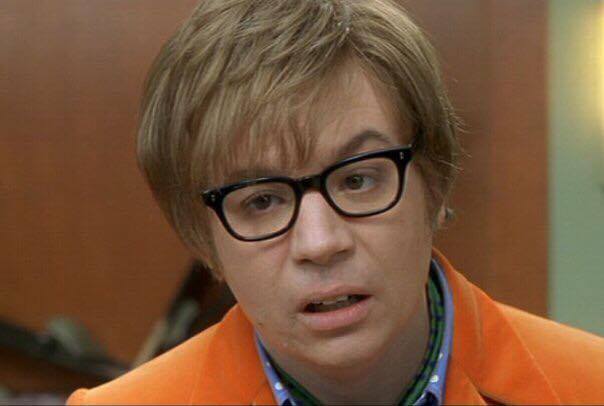Ursula Le Guin of Earthsea fame put it nicely:
Commodified fantasy takes no risks: it invents nothing, but imitates and trivializes. It proceeds by depriving the old stories of their intellectual and ethical complexity, turning their truth-telling to sentimental platitude. heroes brandish their swords, lasers, wands, as mechanically as combine harvesters, reaping profits. Profoundly disturbing moral choices are sanitized, made cute, made safe. The passionately conceived ideas of the great story-tellers are copied, stereotyped, reduced to toys, molded in bright-colored plastic, advertised, sold, broken, junked, replaceable, interchangeable.
What the commodifiers of fantasy count on and exploit is the insuperable imagination of the reader, child or adult, which gives even these dead things life- of a sort, for a while.
Ursula Le Guin has some very vocal criticisms of the mentioned commodified and shackled copies and ideas. One part I read in an English translation preface of Roadside Picnic by Strugatsky Brothers:
“Science fiction lends itself readily to imaginative subversion of any status quo. Bureaucrats and politicians, who can’t afford to cultivate their imaginations, tend to assume it’s all ray-guns and nonsense, good for children. A writer may have to be as blatantly critical of utopia as Zamyatin in We to bring the censor down upon him. The Strugatsky brothers were not blatant, and never (to my limited knowledge) directly critical of their government’s policies. What they did, which I found most admirable then and still do now, was to write as if they were indifferent to ideology—something many of us writers in the Western democracies had a hard time doing. They wrote as free men write.”
The sentence in bold letters, which I formatted as such, is the exact part that is very much needed in any form of entertainment in the last few decades. The ideology that can be ignored can come in form of not only state or economical one, but also very formidably as a cultural one. The connect with the post, the escape from macho men protagonist to vulnerable but determinant teen girls in the movies, series, games and books was already a regurgitated reflection of culture shift and political ideology change that was trending decades before. Having every piece of soft, lovable, darling resistance to oppression stories of made up straight evil men and refrigerator old women technological dystopias has become so ubiquitous that it is either this or time traveling/parallel worlds, intelligent machine"technobabble" stories since 2010s, at best. There is almost no movement to break out of this sanitized, recycled, endearment-abusing fiction, to the degree that even the fictionary art films devolved into templates with same close-up shots for tearjerk or stress imposing. Nothing main story is going beyond the boundaries of cultural ideologies. If we are lucky, there are a couple side characters sprinkled in, that act as wildcard some writers can introduce without having to make them conform to all desirable or relatable personality in every situation.
Rough, wild, inconsistent, slightly changing, unexplained, disagreeable, confusing and incoherent characters and events are all parts of life, too. Imagining these can still yield a whole lot of novel ideas, entertainment and movement, and give the creative arts the meaning of its name.
Unrelated completely except for the fact that Le Guin helped me notice something – in the way that a fish might eventually notice water – when she said that:
We live in capitalism. Its power seems inescapable; so did the divine right of kings.
The massively less complex and artful variation on this is “Wow! Cool robot!”
Personal favorite example: cyberpunk, as a genre.
Though I’m growing fond of countersignal versions that lean into it. Not least because you still need to understand themes to make the gag work.
Another thing I feel makes Hunger Games stand out is how much it focuses on optics. So much of the story revolved around how people perceive her. So much of what she does is impacted by how others look at her. “Don’t act so angry all the time; people won’t like you.” “Do this to win their favor.” Even in the third book, the rebellion was trying to market her to inspire the rebels. I don’t think I’ve seen any other series focus on how much someone appears to others as this one.
This is something I haven’t seen any people comment on, so I’m not sure if it’s just me seeing it, or if it’s more commonplace than I realize and thus not worth bringing up.
Did you read/watch the prequel? Yes, public perception is absolutely a theme of the series.
I was not aware there was a prequel. I will have to look into this.
Don’t go in expecting the same style. It’s not a bad book, but it’s definitely told with a different ‘voice’, or at least it felt that way for me. I enjoyed it, it was definitely not my first choice for a backstory, but getting to see what makes Snow such a good villain in the first 3 books was really nice.
I think what hunger games was calling attention to, the dangers of unchecked capitalism, the prevalence of group think and the uncaring pain inflicted on out-groups different from your own, and told through a lens that also let’s us draw parallels to the way women are treated in society at the time, really struck home when I was younger and it really fit the ‘times’ it felt.
That is juxtaposed to what I think ballad of songbirds is telling, which is almost a shift in the opposite direction. The protagonist is a male, and it’s pointed out quickly that he’s expected to be the Man of the family and all that entails. Where Katniss didn’t care what others thought of her, but had to play the game for survival, Coreo CONSTATLY obsesses about his appearance and how others perceive him but he also plays the game for survival. Both protagonists are poor, scraping by by the skin of their teeth, but one knew of a time before the war and so he has a sort of longing for a time when his family DID have wealth and he knew those luxuries. Katniss hated the system, Coreo believes he can climb on top of it. Coreo is in the “in-group”, the one that is doing the exploiting, and so there’s a different tone in how that conflict is perceived and discussed.
I’ll say no more as to not give any spoilers, I recommend it and it’s not long.
Eh, Hunger Games books were okay, I don’t think I’d consider them “incredible literature.” They did all the “sorted into groups, based on, illegal to” stuff, too, they just did it
firstsecond, after Harry Potter.I love Hunger Games a lot, really I do, but “amazing piece of literature” does such a disservice to so many other books in my opinion
It was also a full on reskin of an existing book that had a far superior story (Battle Royale). Though tbf, HG did significantly improve the political message BR was going for.
Yup, I would have had more respect for her if she just admitted she was inspired by this book instead of pretending she never heard of it. It’s insulting really.
BR was cooler and made for a good one shot. The book also has shoutouts to rock and roll which were kinda fun.
Shame that Hunger Games can’t acknowledge the legacy, but if they did they’d probably be sued.
Sued for what? I don’t know any countries which stop you making derivative work or full-on copying plots as long as you’re not literally plagiarising work or reusing copyrighted characters/names.
Seconding this. I remember finding and reading Battle Royale in high school after watching the movie with my dad. It’s great, and the movie did a good job adapting it.
Reading Hunger Games after that just felt derivative, though admittedly I’m not the target audience so much of the appeal is lost on me to begin with.
Hunger Games is a lame Battle Royale knock off
They simply took inspiration from Fortnight
I felt like that trend lasted nearly a decade, but maybe thats just cause i got so sick of it lol
I’ll offer a dissenting. I did not think the Hunger Games were good by any metric. I read all three in a four day period. They have the substance of popcorn, and popcorn is delicious. But they are a tiny fraction of what good YA fiction can be. I hold for comparison: The Hobbit, Earthsea, and His Dark Materials – and there are many others – that will stand the test of time while the Hunger Games is a footnote about a fad.
What is YA?
Young Adult
I kinda miss 1970s dry satire, like Logan’s Run and Soylent Green, where everyone instantly clocks the premise as downright stupid, but you want to see where it goes.
The hunger games books suck as someone who read them all







